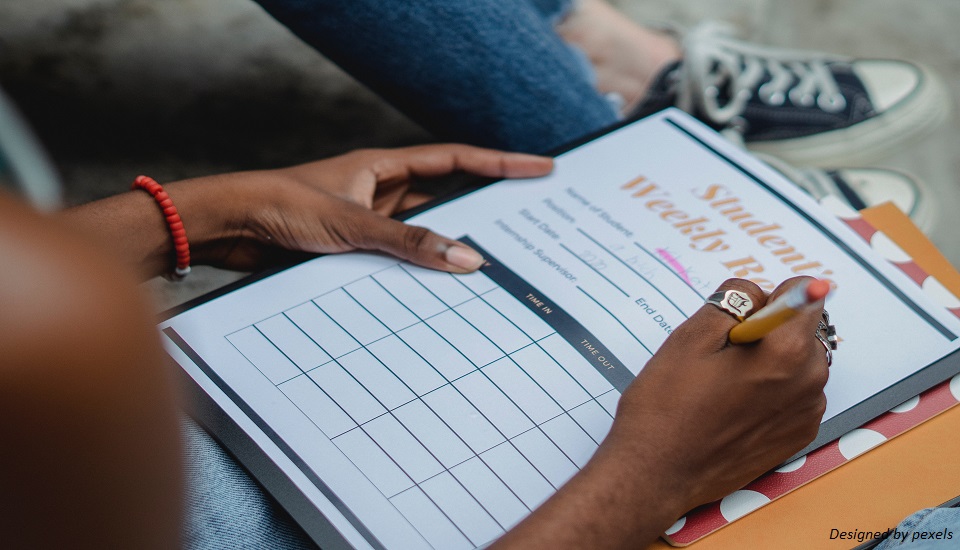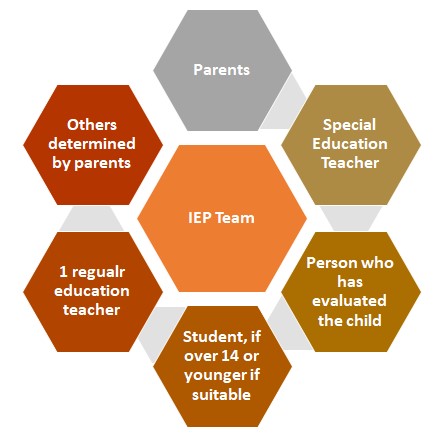
An IEP is developed by several people including a team of educators, parents, school district representatives, and other specialists. It outlines the student’s unique learning needs, goals, accommodations, and services required to support their academic success. Keeping that in mind here are 7 major components that you must consider for writing a quality individualized education program (IEP).
7 Elementary Components To Include In An IEP

Here is everything that you should include in an IEP:
Every IEP begins with an evaluation of the student’s current academic achievement and functional performance. This evaluation considers the student’s strengths and weaknesses, their performance in different subject areas, and their ability to function in non-academic areas such as communication, motor skills, interpersonal relationships, and socialization.
This evaluation helps the team to determine the student’s unique learning needs and establish appropriate goals and objectives for the student. It might also include anecdotal feedback and information from teachers to further describe a child’s skills.
The IEP should include measurable annual goals that are aligned with the student’s unique learning needs. These goals should be specific, measurable, achievable, relevant, and time-bound (SMART). Goals can be academic or functional and should be written in a way that can be measured to determine if they have been achieved.
The goals should also be challenging but achievable and should be focused on the student's long-term educational objectives.
The IEP should include a plan for progress monitoring and reporting. This plan should outline how the student’s progress toward their annual goals will be measured and reported to the student and their parents. The IEP team should regularly review the student’s progress and make adjustments to the plan as needed.
This will give you a clear idea of how your child is being evaluated throughout the year and also offer reassurance that you will be kept in the loop for a child's setbacks and achievements.
Special education and related services are the educational support and services that students with disabilities may need to achieve their educational goals. Special education refers to the specialized instruction that students with disabilities require to access the curriculum, while related services are the support services that students need to participate in the school environment.
These services can include things like speech and language therapy, occupational therapy, or counseling. The IEP should specify the type, frequency, and duration of the special education and related services needed to support the student’s academic success.
All students must participate in mainstream classrooms and there should be opportunities to participate in statewide assessments. The IEP team faculty and support staff must ensure that do everything in their capability to keep a child in the least restrictive environment.
This part of the IEP generally aims at inclusion and details how a child can join a general classroom environment without any restrictions. It should also specify the time limit for the participation of these students in such classes along with explaining the rationale for such decisions.
Accommodations and modifications are changes made to the learning environment to ensure that students with disabilities have equal access to the curriculum. Accommodations refer to changes in how instruction is delivered or how students are tested, while modifications refer to changes in the content or skill level of instruction.
Accommodations and modifications can include things like extended time for tests, preferential seating, simplified language, or alternative forms of assessment. The IEP should clearly identify the accommodations and modifications necessary to support the student’s academic success.
Transition services are designed to help students with disabilities make a successful transition from high school to post-secondary education, employment, and independent living. The IEP team should begin to plan for transition services by age 14, or earlier if appropriate.
Transition services can include things like vocational training, job coaching, and support in developing independent living skills. The IEP should specify the transition services needed to support the student’s long-term goals.
Guide Your Child To Success
A child who learns differently must find it overwhelming to navigate day-to-day school life. However, a carefully designed IEP can identify manageable goals that motivate and reassure the success of a child. Thus, you as educators must understand what to include and why. For starters enroll yourself in Online Special Education Courses to gain relevant insights into the students and their behavior.
Once you have a grasp don't forget to ask questions to the IEP team and hold people accountable for closely monitoring a child's progress. This is because you in many ways captain the IEP proves and your attention to detail can plan a child's success.
Get In Touch
UK – Registered OfficeAsian College Of Teachers Ltd (UK)
27, Old Gloucester Street, London – WC1N 3AX, UK
UK Toll Free: 0-808-189-1203
www.asiancollegeofteachers.co.uk
All SEN Courses are designed, developed and created by Asian College of Teachers Ltd, United Kingdom. These courses are certified by CPD Certification Service UK and endorsed by NCC Education, UK, and Short Courses from CACHE, UK through Laser Learning UK.
Asian College of Teachers (ACT) undertakes a continuous review of its teacher training courses to ensure imparting high quality education. However, there might be circumstances outside of ACT’s control which might affect its stakeholders like if you are planning to teach in a different country, applying for a teaching license, pursuing higher studies or trying to get the certificate approved by the Ministry of Education (MoE) of a particular country then you can do so with the certificate issued by Asian College of Teachers (ACT). However, each country’s Ministry of Education (MoE) or educational bodies set certain standards that are indispensable for the pursuit of higher studies or teaching in schools in that country. So it can be a possibility that you may be able to use the certificate for higher studies or teaching purposes in one country and not in another. Therefore, we strongly recommend that you investigate thoroughly and check with the relevant authorities regarding the acceptance of the certificate issued by us before you enrol on a particular course. ACT strives to offer high-quality education and its certificates can be valuable for various purposes internationally, but still it is crucial for individuals to verify the specific recognition of the certificate in the country they intend to use it, especially for formal education or professional licensing purposes. This approach ensures that the stakeholders make informed decisions regarding their educational and career paths.
© 2025 Asian College of Teachers. All Rights Reserved. Asian College Of Teachers is a trading brand of TTA Training Pvt. Ltd (India) - CIN U80902WB2016PTC215839, Asia Teachers Training Co., Ltd (Thailand) - Registration No. 0105558193360, Asian College Of Teachers Ltd (UK) - Company Number 9939942 & Asian College Of Teachers LLC, (USA) - Federal Tax Identification Number 30-1261596
Designed by kreativewebtech